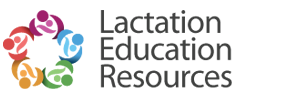Baby-Friendly Takes a Team
https://womensmentalhealth.org/posts/baby-friendly-mom-unfriendly/
This article is full of conjecture as opposed evidence, to get people's attention. To use inflammatory statements like "nursing staff typically refuse exhausted mothers to take care of their babies" and "rigid and rule bound" elicits a negative response to the evidence-informed practices of the international baby friendly designation. Baby friendly is not just about breastfeeding. It is about helping the newborn transition to extra uterine life in the most physiologic appropriate way. ALL babies. Skin to skin, rooming in, listening to the baby, are the what these practices reinforce. For example, rooming in has been the standard of care in military medicine for over 15 years and it is what parents expect. Educating staff members and providing them the skills to support all families is a piece of the process.
This article puts the emphasis on the comfort of the mother, not newborn and his adjustment to life outside the womb. During this critical time in the newborn's life, shouldn't the emphasis be on the baby's needs for care by the most familiar person to him for transition to the new world? Adults can understand, rationalize and make adjustments to their sleep patterns, knowing it is a challenge but temporary. The baby cannot.
Part of the onus of responsibility is upon the obstetric providers to educate mothers during their pregnancy about what to expect in the immediate post-partum phase in the hours and days after delivery. Evidence shows that rooming in allows for MORE sleep by the mother baby dyad. Appropriate education about normal newborn circadian rhythms being OPPOSITE of the mother's in the early days can help them to understand that their baby should wake frequently at night. It's healthy and normal. Understanding the second and third night of life as ones which will entail a wakeful baby and to encourage the mother to plan ahead for this eventuality, will help them to be prepared. Appropriate anticipatory guidance, especially for the families with a history of anxiety and depression, will help them to be proactive in their own self-care and to plan ahead. 24-72 hours after birth, the family needs these skills to help them welcome the new member(s) to their family. Providing them with the supportive environment during this transition and the education they need to care for their baby 24/7, will empower them to do what is best for them and their family AFTER discharge.
It takes a team to support and educate everyone in adapting to their new roles as a family. To blame the baby friendly practices as being mother ‘un-friendly’, doesn't allow for the opportunity for the parent to embrace their new role in a supportive environment. Continuing paternalistic hospital practices from the 1950's, in light of new evidence from around the globe, is a disservice to our families who expect and deserve more. Quoting Dr. Maya Angelou, "I did then what I knew how to do. Now that I know better, I do better". Implementing every aspect of baby-friendly practices helps hospitals to be friendly to all families.
Related Posts
By accepting you will be accessing a service provided by a third-party external to https://www.lactationtraining.com/
